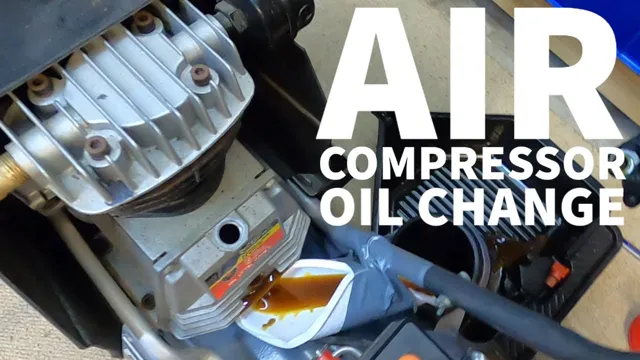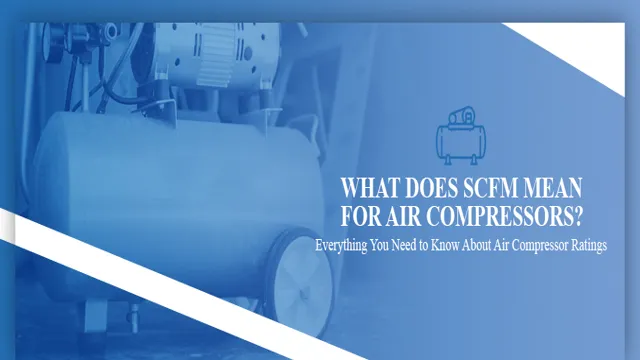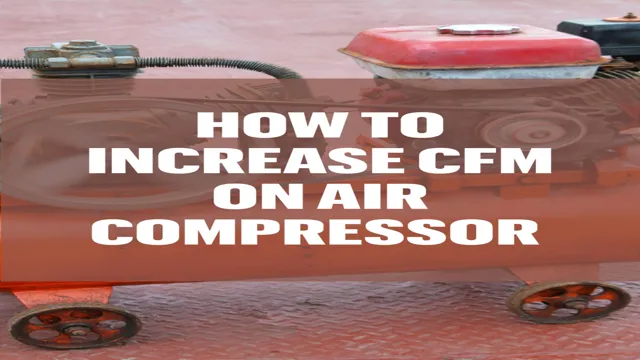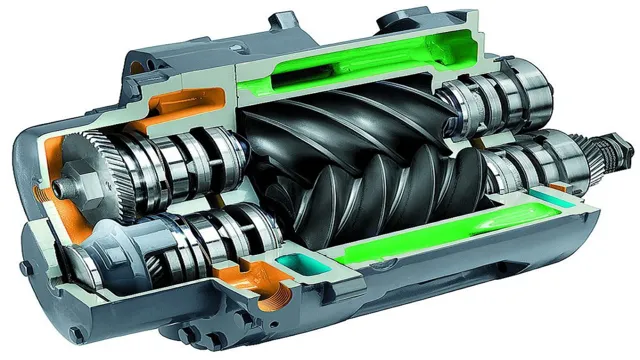What Kind of Oil for Air Compressor: A Complete Guide to Choosing the Right Oil

Have you ever wondered why choosing the right oil for your air compressor is so important? Well, just like your car needs the right type of oil to function properly, so does your air compressor. Without the right type of oil, your machine won’t run efficiently, leading to increased wear and tear on the parts and potentially shortening its lifespan. But with so many different types of oil out there, how do you know which one is right for your compressor? Think of it like choosing the perfect pair of socks for a specific activity.
You wouldn’t wear dress socks to go for a jog, just like you wouldn’t wear athletic socks with dress shoes. Each activity requires a specific type of sock just like each compressor requires a specific type of oil. And just like socks come in different lengths and materials, compressor oils come in different viscosities and compositions.
In this blog, we’ll delve into the different factors you should consider when choosing the right oil for your air compressor. From viscosity to compressor type, we’ll cover everything you need to know to ensure your compressor runs smoothly and efficiently. So, whether you’re a seasoned compressor user or just starting out, keep reading to learn how to choose the perfect oil for your machine.
Understanding the Needs of Your Air Compressor
One of the critical factors in maintaining your air compressor’s optimal performance is ensuring that you use the right oil. Using the wrong type of oil for your air compressor can result in poor performance and even mechanical failure. So, what kind of oil for an air compressor should you use? First, consider the oil’s viscosity, which is the thickness or fluidity of the oil.
Typically, air compressors require oil with a viscosity of ISO 68, 100, or 150. You should also look for oil that has anti-wear components to help protect your compressor’s moving parts from wear and tear. Additionally, it’s a good idea to choose oil with rust inhibitors to prevent rust and corrosion buildup in your compressor’s tank.
Regular oil changes are also essential to ensure your compressor runs at peak efficiency. By understanding your air compressor’s specific needs, you can choose the right oil to help keep your compressor running smoothly for years to come.
Compressor Type and Operating Environment
When it comes to choosing the right air compressor for your needs, it’s essential to understand the type of compressor and operating environment that will work best for you. Different compressors are designed for different applications, and you need to choose one that can meet your specific requirements. For instance, if you need a compressor for heavy-duty applications, a rotary screw compressor might be the best option as it’s designed for constant use and can deliver high levels of airflow.
On the other hand, if you’re looking for a compressor for lighter applications or for home use, a reciprocating compressor might suffice. Additionally, the operating environment can also impact the performance of your compressor. For example, if you’re working in a dusty environment, you may need to invest in an oil-free compressor that can handle such conditions without being damaged.
Therefore, it’s crucial to consider the type of compressor and operating environment when selecting an air compressor to ensure that it can operate efficiently and deliver the results you desire.
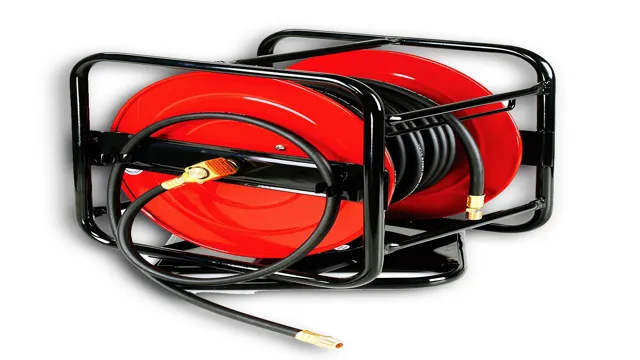
Oil Viscosity Requirements
When it comes to maintaining your air compressor, one of the most essential factors to consider is the oil viscosity requirement. Every air compressor is unique and comes with its own set of specifications for the type of oil needed to keep it running smoothly. Whether you have a large industrial air compressor or a small one for your garage, it is crucial to choose the correct oil viscosity.
The viscosity of the oil determines how thick or thin it is, which in turn affects the ability of the compressor to move the oil throughout its various parts. If the oil is too thick, it won’t be able to flow properly, which can result in damage to the compressor’s parts or even a breakdown. On the other hand, if the oil is too thin, it won’t be able to provide adequate lubrication or protect the compressor from heat and wear.
That is why it is important to follow the manufacturer’s recommendations and choose the right oil viscosity for your air compressor to help it run smoothly and efficiently.
Types of Compressor Oils
When it comes to air compressors, one of the most important factors to consider is the type of oil to use. There are different types of compressor oils available, and each one is formulated to provide specific benefits. The most common types are mineral oil, synthetic oil, and semi-synthetic oil.
Mineral oil is a basic oil that works well in most compressors, but it can degrade faster in high-heat environments. Synthetic oil is ideal for compressors that operate under extreme temperatures since it maintains its viscosity better than mineral oil. Semi-synthetic oil is a blend of both mineral and synthetic oils, making it a great option for compressors that require a lot of lubrication.
Ultimately, the choice of oil will depend on the compressor’s specific requirements, so it’s recommended to consult the manufacturer’s guidelines before making a final selection. And remember, it’s always better to use high-quality oil to ensure the compressor operates efficiently and prolong its lifespan. So, what kind of oil for air compressor will you choose?
Mineral Oil
Mineral oil is a type of compressor oil that is widely used in various industries. It is highly refined petroleum oil that is specially formulated to provide efficient lubrication and cooling to the compressor parts. Mineral oil is an affordable option that offers good stability and durability, making it an ideal choice for low-load compressors.
Additionally, mineral oil provides excellent protection against rust and corrosion, ensuring that the compressor lasts longer. There are different types of mineral oils available in the market, each designed for specific applications. For instance, there is R&O (rust and oxidation) oil, which is highly refined and contains additives to increase its anti-wear properties.
Then there’s the ashless oil, which is formulated to minimize the amount of ash residue generated during operation. There’s also the non-detergent oil, which is free from any additives and is ideal for compressors that require low deposit formation. In conclusion, mineral oil is a popular choice for compressor oil due to its affordability and excellent lubrication properties.
However, it’s essential to select the appropriate type of mineral oil based on the compressor’s specific requirements for optimal performance.
Synthetic Oil
When it comes to choosing the right compressor oil for your machine, it’s essential to consider the type of oil that best suits your compressor’s needs. There are primarily three types of compressor oils: mineral oil, synthetic oil, and semi-synthetic oil. Synthetic oils are becoming increasingly popular due to their superior performance and longer lifespan compared to other types of oils.
Synthetic oils are made through chemical processes, and they offer better resistance to heat, oxidation, and wear and tear. Additionally, synthetic oils have a higher viscosity index, which means they can maintain their properties even at high temperatures. Unlike mineral oils, synthetic oils are also free of impurities, making them more reliable and efficient.
If you want to get the most out of your compressor, synthetic oil is the way to go. Its unique properties will ensure that your machine runs smoothly and efficiently, providing you with better outcomes in the long run.
Blended Oil
Blended Oil When it comes to choosing the right compressor oil, there are a variety of options available depending on your specific needs. One type of compressor oil that has become increasingly popular in recent years is blended oil. Blended oil is a combination of synthetic and mineral oils, designed to offer the best of both worlds.
Mineral oils provide good lubrication and cost-effectiveness, while synthetic oils offer superior performance in extreme temperatures and extended periods of operation. By blending the two, a compressor oil is created that can handle a wider range of temperatures and operating conditions, offering better overall reliability and efficiency. So, if you’re looking for a compressor oil that can handle the demands of your operation, blended oil could be just what you need.
Factors to Consider When Choosing a Compressor Oil
When choosing the best oil for an air compressor, there are several factors that need to be considered to ensure maximum efficiency and longevity of the equipment. Firstly, it’s important to look at the viscosity of the oil. Choosing an oil with too high or too low viscosity can lead to increased wear and tear on the compressor, reducing its lifespan.
Additionally, it’s critical to consider the type of compressor being used, as different compressors may require different types of oil depending on their design and operating conditions. Finally, it’s essential to choose an oil that provides sufficient lubrication while also having a low foam tendency to prevent excessive build-up within the compressor. Keeping all these factors in mind, choosing the right oil for your air compressor can help maintain its performance and extend its lifespan.
So next time, when you are thinking of what kind of oil for air compressor, make sure to consider these factors to make an informed decision.
Oil Performance Ratings
Compressor Oil Compressor oils play a crucial role in the operation of air compressors. There are several key factors that must be considered when selecting the best oil for your compressor. It is important to understand the differences in oil performance ratings and how they can impact the performance of your compressors.
One of the most important factors to consider when choosing a compressor oil is the viscosity rating. This rating indicates how well the oil will maintain its viscosity at different temperatures. Another important factor to consider is the oil’s ability to resist oxidation.
When oil oxidizes, it can cause a buildup of sludge and varnish, which can negatively impact compressor performance. Other factors such as base oil type, additive package, and cleanliness level should also be considered when selecting a compressor oil. It is important to consult with a trusted supplier or manufacturer to ensure you are selecting an oil that meets your specific compressor and application requirements.
With the right oil, you can ensure optimal performance and extend the lifespan of your compressor.
Temperature Range
When choosing a compressor oil, the temperature range is an important factor to consider. Different oils have different temperature limits, so it’s essential to choose an oil that suits the temperature requirements of your compressor. If you use an oil with a lower temperature limit than your compressor requires, it may not provide adequate lubrication, leading to premature wear and tear of the compressor components.
On the other hand, if you use an oil with a higher temperature limit, it may break down or become less effective due to excessive heat, again resulting in damage to the compressor. Therefore, it’s crucial to choose an oil with a temperature range that matches the operating conditions of your compressor. By doing so, you can ensure optimal performance and longevity of your compressor.
Oil Additives
Choosing the right compressor oil can be a bit overwhelming if you are not familiar with the different factors to consider. One of the first things to take into account is the type of compressor you are using, be it reciprocating or rotary screw. This can have a significant impact on the type of oil you should use.
Another crucial factor is the environment your compressor operates in. Is it exposed to high temperatures or humid conditions? These variables can affect the oil’s viscosity and its capacity to resist oxidation. Additionally, it is essential to look at the additives present in the oil.
The right mix of additives can enhance the oil’s performance, improving its resistance to wear, protecting against rust and corrosion and extending the oil’s life. Finally, consider the viscosity grade and the oil’s brand, as some reputed brands typically offer high-quality oil formulations that surpass industry standards. Overall, taking these factors into account enables you to select the right compressor oil that will best protect your equipment and keep it running efficiently.
Conclusion and Final Thoughts
In conclusion, choosing the right oil for your air compressor is essential to ensure its longevity and efficient performance. Just like selecting the right ingredients for a recipe, using the correct oil is the key to achieving the perfect blend of power and durability. So don’t skimp on your compressor’s oil, because as the saying goes, a well-oiled machine is a happy machine (and likely to last longer too!).
Happy compressing!”
FAQs
Can I use vegetable oil in my air compressor?
No, it is not recommended to use vegetable oil in air compressors as it can break down quickly and cause damage to the compressor.
Is it necessary to use synthetic oil in my air compressor?
It is not necessary to use synthetic oil in your air compressor, but it is recommended as it provides better lubrication and lasts longer than conventional oil.
How often should I change the oil in my air compressor?
It depends on the usage, but generally, oil should be changed every 500-1000 hours of use or every three months to ensure optimal performance.
What happens if I use the wrong kind of oil in my air compressor?
Using the wrong kind of oil can result in poor lubrication, excessive wear and tear on the compressor parts, and reduced performance of the compressor.
Can I use motor oil in my air compressor?
No, it is not recommended to use motor oil in your air compressor as it is not designed to withstand the high heat and pressure of the compressor.
What is the best type of oil to use in my air compressor?
The best type of oil to use in your air compressor is one that is specifically designed for air compressors, such as synthetic oil or compressor oil.
How do I know when it is time to change the oil in my air compressor?
You can check the oil level and condition regularly using the dipstick or oil sight glass. If the oil level is low or the oil appears dirty or discolored, it is time to change the oil.

